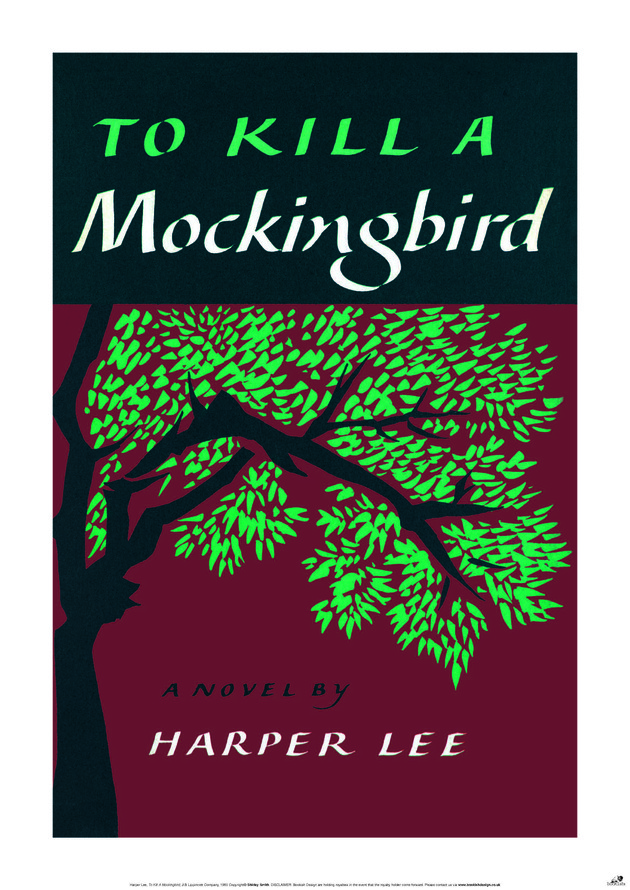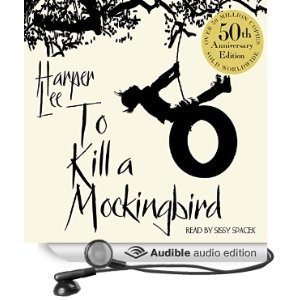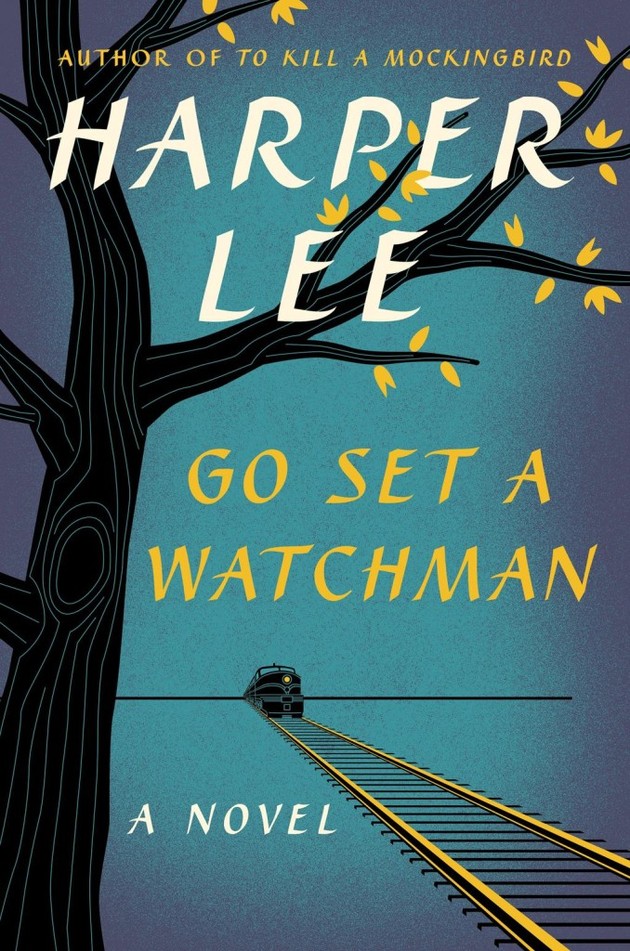“To Kill a Mockingbird,” 1960, Harper Lee. HarperCollins Books, Publishers. Audio read by Sissy Spacek, 2006, Recorded Books, Caedmon Books. (Ten out of ten)

If you grew up in the United States and attended school in the last fifty years, chances are good that you’ve read “To Kill a Mockingbird” already. Probably at some point in between 8th and 10th grades, probably in your English class, probably under the guidance of a teacher who got all teary about civil rights. And probably…you didn’t quite get it. Probably, you faked your way through reading enough of the book to fill in the blanks on worksheets, and get an idea of the plot, but you didn’t quite read it completely. All of those probablys add up to a lot of assumptions about your character. But I’m probably right.
That was the situation I was in. I had a fondness for the book, when teacher friends would tell me they were having students read it, I would get all righteous and say “hells yes they should be reading that–” even though I couldn’t tell you much of the story outside of what was on the back of the book. We read it in eighth grade, and there are things about it I remember just from classroom activities. We did a class reading of a portion of the trial, and I got to be Bob Ewell, the dad who was abusing his daughter and framed Tom Robinson for murder. I’ve got a durn good southern accent when I need to, and I remember I got a lot of laughs and accolades for my performance. Yeah, accolades. But being the lazily progressive guy I am, I was pretty sure that I needed to revisit “Mockingbird” before Harper Lee’s sequel “Go Set a Watchman” comes out in July. I mean, I’m a voracious reader. I should be able to legitimately read “To Kill a Mockingbird.” Last year I repented of my “Great Gatsby” high school fraud, now it was time to do the same to Harper Lee’s classic. After getting a range of recommendations from “read it right now, a-hole,” to “just watch the movie” (which I’ve never seen, by the way)(although I stole a friend’s blu-ray and should really return it) to “why bother?” I picked up the 2006 audio version, read by Sissy Spacek.

If you’re planning on “rereading” this book, or if you’ve never read it in the first place, I highly, highly recommend Spacek’s performance. It’s a perfect marriage of performer and text, and even though I don’t know how much I’ve ever liked her in anything aside from “Carrie,” wow. It’s an impressive reading of a nearly perfect book.
I won’t spend a lot of time on the plot; it’s told from the perspective of Jean Louise “Scout” Finch, a girl growing up in small town Alabama. She’s got an older brother Jem, and their father Atticus is the defense attorney in town, and a state representative. Atticus is called on to represent Tom Robinson, a black man accused of raping a white woman. The story is set in the 1930s, and the Great Depression is a backdrop that intrudes on some scenes, but is mostly absent from Scout’s relatively carefree life. She’s a kid, and she’s a tomboy, and she makes an astute and somewhat removed narrator of the story. As adults we often overlook children, so they can be in a room and hear conversations that we assume they don’t understand, and witness things that we think go unnoticed. Scout also makes a great narrator because she hasn’t bought into the ways of the adults around her yet. She believes in the equality of people regardless of race or gender, she believes in justice, and she believes in her father, Atticus. She thinks he’s boring, but the best man she knows.
Atticus Finch is the best man any of us could ever aspire to be. Kind, strong, talented, respected, nurturing, just…but in a way that moves him past the blandly wise fathers of “Father Knows Best” or “The Andy Griffith Show” which were undoubtedly patterned partially on him. He’s a crack shot with a rifle, but hates guns. He’s arguably better than his neighbors in every way, but is courteous to them, teaching his children the same respect for all. When I “read” this in junior high, I identified with Scout and Jem; now as a father of ten and thirteen year old sons, I watched Atticus more carefully. If he became a standard for television fathers, television lawyers even more so. Jack McCoy of “Law & Order” owes a lot to Atticus Finch. Maybe Atticus owes something to Perry Mason or another fictional lawyer, but the courtroom scenes are still tense, crackling with suspense relieved only by well-timed bits of humor.
Atticus Finch is the best man any of us could aspire to be
The characterization of Scout, Jem, Dill, the Ewells, Tom Robinson and the other major characters of the book feels whole and complete, even if at times they come across as a little too Mayberry for me. That’s probably just a result of my cynicism and age and having never lived in rural America. They’re not all squeaky clean, and there’s plenty of darkness in this little town, but when characters are literally saying “aw shucks” I always cringe a little. Of course, Scout also swears better than just about anyone in the damn book, so that could cancel the Opie-ness out. There’s a charm in the story that the kids of the book are going through that makes me nostalgic for a time that I didn’t live through myself, but I still recognize. That story and adventure is happening on one plane, with the other, more adult story concerning the trial of Tom Robinson.
Lee writes Atticus almost as a man ahead of his time, a post-civil rights movement idealist fighting the good fight in a 1930s Alabama that isn’t ready for him yet. First we see the racism of the poor whites on the edges of town, but later in the book we see it just as well in the high society ladies who come to tea in the Finch home. Reading this more than fifty years after it was published, and reading it as a result, I have to wonder where Atticus Finch would fit in today. Would he be as frustrated with 2015’s headlines as he was with 1935’s? Are the issues of race bound to be so perennial that “Mockingbird” will be relevant to my grandchildren? It feels like changing the dated details of the book would be all that’s necessary to bring the story into the 21st Century. And that’s unfortunate.

It’s rare that a book’s sequel comes out fifty years after the original, but that’s happening this summer. No matter how great it is, I fear “Go Set a Watchman” has an impossible act to follow. “To Kill a Mockingbird” is great. And yes, it should be read by dumb kids in junior highs who underappreciate it. But it should be read again by adults, who think they know the story of Scout and Atticus Finch, but who have only scratched the surface.